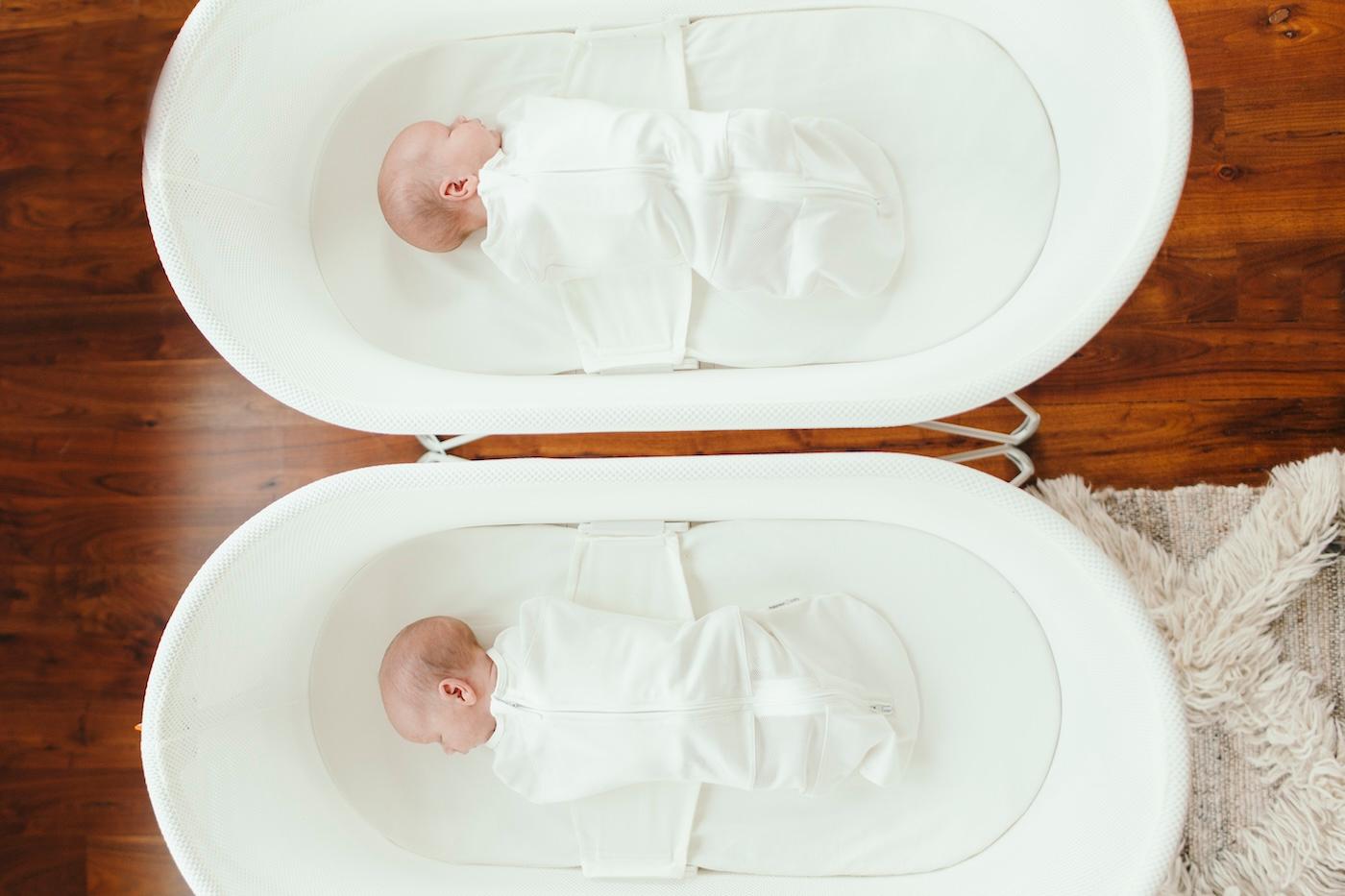PREGNANCY
21 Weeks Pregnant: What’s the Trick with Braxton Hicks?
What?? Was that a contraction?!

Written by
Dr. Harvey Karp

21 Weeks Pregnant: Baby at 21 Weeks
Did your parents ever keep track of your annual growth by making a mark on the wall or hall doorway? Well, on your next OB or midwife visit, don’t be surprised if they pull out a measuring tape and start keeping track of your fundal height (aka the distance from your pubic bone to the top of your burgeoning baby bundle). This is a nice little low-tech—but high value—way to keep track of your baby’s healthy growth and your level of amniotic fluid.
At 21 weeks, your beautiful baby still has a pretty scrawny and wrinkled body. She has grown a bunch, but has not yet started to pack on the body fat necessary to keep her warm after she’s born. Her skin is so thin that her veins are easily visible, a blue-lined street map of her circulatory system. Interestingly, all babies start out looking like little…girls! But, now things start to change. If you have a tiny girl baking inside of you, her vagina is now forming, and if you have a boy, his testes will soon begin to descend (drop) from inside his belly into his scrotum and the clitoris will grow into a penis. And, all these miraculous changes are happening effortlessly! In fact, your baby is snoozing away most of the day and has just begun to have rapid eye movement sleep or REM. That’s the type of sleep associated with dreaming and simple remembering (of sounds, sights and general feelings).
21 Weeks Pregnant is How Many Months?
At 21 weeks, you’ve been preggers for 4 and 3/4 months…just past half-way to the finish line.
Baby Size at 21 Weeks
Your curled up baby is about the size of a big, red pomegranate.
21 Weeks Pregnant: What to Expect
What?? Was that a contraction?! This month may be the very first time your uterus starts some little practice runs, otherwise known as Braxton Hicks contractions (first described in 1872 by the British OB, John Braxton Hicks). They aren’t painful—they feel sort of like a band tightening around your uterus or your belly getting hard. And they don’t mean you’re going into labor!
Unlike “real” contractions, Braxton Hicks are sporadic and come and go, especially if you’re over-exerting yourself or get dehydrated. You’ll feel them in the front, which is different from labor contractions that typically start in the back and move to the front. The common theory about Braxton Hicks is that they’re your uterus’s way of preparing for the real thing. They happen more often as you get closer to your due date and may help your cervix to efface, shorten and thin, an important preparatory step before birth.
Don’t worry, they won’t hurt you or your baby. If you feel one coming on, try relaxing and swigging a big glass of water to ease it. Shifting your position can also help. Note: If contractions are coming over and over every several minutes, increasing in strength or become painful, call your care provider (intense, frequent contractions could be a sign of labor). Most moms say you will definitely know when you are in labor, but it never hurts to check in with your team if something seems amiss.
21 Weeks Pregnant Symptoms
Common symptoms during your 21st week of pregnancy include:
- Backaches, especially in the lower back
- Increased appetite
- Bloating and gas
- Braxton Hicks
- Fetal movement
- Hot flashes
21 Weeks Pregnant: To-Do List
Finalize your baby registry. Your registry is super helpful for guiding your family and friends to the gifts you want the most. Don’t shy away from including the big-ticket items—stroller, car seat, SNOO, etc.—as family or friends often like to pitch in on one big gift.
Learn about breastfeeding support: If you’ve never breastfed before, you may think it’s as simple as bringing your babe to your boob. Breastfeeding may be all-natural, but that doesn’t mean it’ll come naturally. In reality, nursing success makes you feel great…and struggles can make you feel very frustrated and overwhelmed. That’s why many mamas benefit from a little extra help. Most hospitals have a lactation consultant to give some tips to help new moms get off to a good start. However, we definitely recommend taking a class in advance. Ask some friends or your care provider for the name of a nursing expert—or contact your local La Leche League—to sign up for a class and set yourself up for success.
Start reading up on baby care: It’s easy to become laser-focused on labor and birth, but that’s just the first step on the incredible journey ahead! Here are some articles that help moms- and dads-to-be brush up before the baby arrives. Finally, babies do come with instructions!
- 10 Big Surprises About Newborn Babies
- Hope to Breastfeed? Learn This in Advance
- The 5 S's for Soothing Babies
- AAP’s Guidelines for Safe Sleep & SIDS Prevention
- Do This from Day One and Avoid 'Cry It Out' Altogether
- Prevention: The Best Cure for the 4 Month Sleep Regression
Quote of the Week
Children reinvent your world for you. —Susan Sarandon
Disclaimer: The information on our site is NOT medical advice for any specific person or condition. It is only meant as general information. If you have any medical questions and concerns about your child or yourself, please contact your health provider. Breastmilk is the best source of nutrition for babies. It is important that, in preparation for and during breastfeeding, mothers eat a healthy, balanced diet. Combined breast- and bottle-feeding in the first weeks of life may reduce the supply of a mother's breastmilk and reversing the decision not to breastfeed is difficult. If you do decide to use infant formula, you should follow instructions carefully.
SHARE THIS ARTICLE
PARENT PICKS
Bestsellers



















